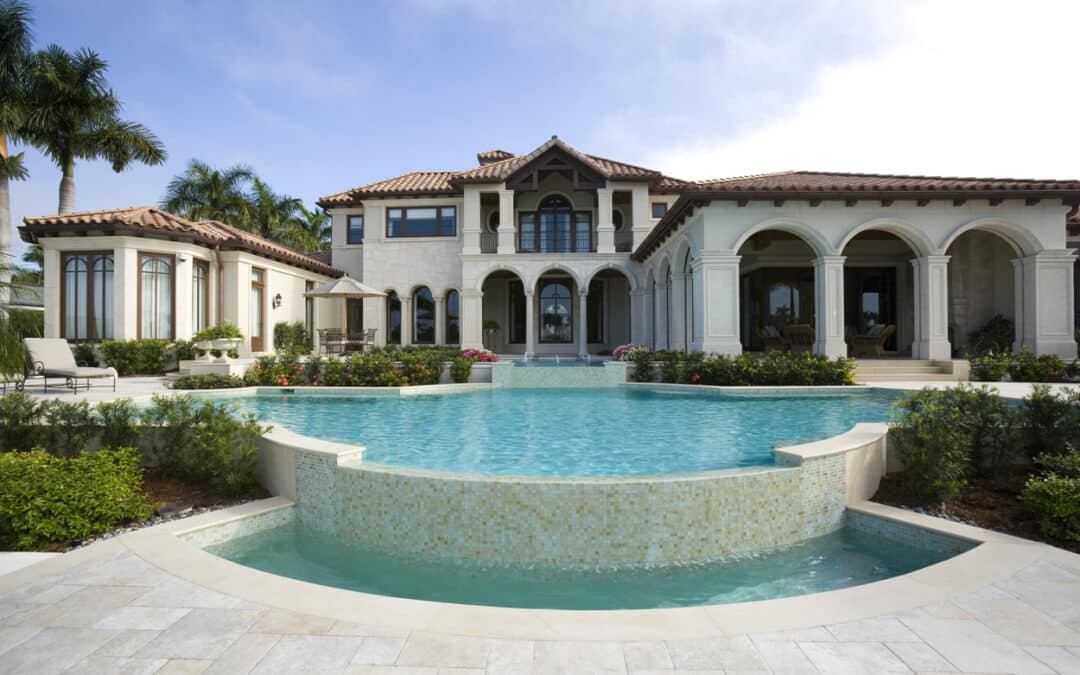Luxury real estate is a coveted market in the real estate industry. Not only do you have the opportunity to make higher commissions, but it also comes with a higher prestige than traditional real estate.
Becoming a luxury agent doesn’t happen overnight, however. These positions are built from the bottom up, and most successful luxury real estate agents will agree that they had to pay their dues to get there.
11 Essential Truths About the Luxury Real Estate Market
The qualifiers for “luxury” vary, with companies such as Redfin including prices ranging from $850,000 to $1,750,000 as the bar for luxury status, while a representative from MMD Realty in Fort Lauderdale Florida puts the cutoff point between $1 and $4 million, depending on location. In comparison, The Institute for Luxury Home Marketing puts the 2023 median luxury home price for single-family homes at $950,000.
Regardless of how luxury is qualified, the draw of the industry to agents can’t be denied. However, it’s important for new and prospective luxury real estate agents to understand that there are striking differences between the luxury real estate market compared to the traditional real estate market.
Truth #1: Your Clients are Market Savvy
One of the biggest differences in the luxury real estate industry compared to traditional real estate is the knowledge of the clients. Most luxury real estate clients are incredibly market savvy, and for many, this may be their second, third, or even fourth home. Agents who decide to enter the luxury real estate market will quickly learn that having the most up-to-date, expert information on market trends is imperative to their success.
You never know when a client may call, so you should be up to date on the market all day, every day. The last thing you want to happen is to have a client ask a question you don’t have an answer to; or to know more about the market than you do. This can quickly diminish your authority and put your client in a position of distrust.
Truth #2: Home Staging Isn’t Optional
Home staging is an important investment for home sales, but even more so in the luxury real estate market. Home staging helps to maximize the rate of return on the sale of the price of the property. With an average investment of 1% of the sale price, data from the Real Estate Staging Association report an average (75% of sellers) ROI of 5-15% over asking price.
For sellers who decide not to stage, an International Association of Home Staging Professionals (IAHSP) survey also shows that the average price reduction on a home was 5-20 times more than what the staging investment would have been.
Truth #3: Photography Makes or Breaks Your Sale
Photography is also incredibly important when it comes to luxury real estate. Your clients will be busy and some of them may be overseas. Without high-quality photos that include drone footage, twilight shots, and video footage, you’re less likely to generate interest in an in-person tour. This is definitely not a place to skimp when you’re in the luxury real estate market.
Truth #4: Your Ability to Network Will Make or Break You
The luxury real estate relies less on traditional MLS listings and more on having a deep network of buyers and connections within the upper echelon. The most successful luxury real estate agents will have started their journey with a top-tier luxury real estate mentor and will network strategically to grow a deep network they can tap into when opportunities become available.
Truth #5: You Can’t Afford to Settle for Less Than Global Exposure
Luxury real estate appeals to a much wider radius than traditional real estate. According to the National Association of Realtors, the median distance moved from 2015-2020 was 15 miles, while the mileage increased in 2022 to a high of 50 miles. Luxury real estate buyers, however, come from across the country—and all around the world.
According to the National Association of Realtors 2022 study, “2022 International Transactions in U.S. Residential Real Estate,” the top international buyers in the United States by dollar volume are from China ($6.1B), Canada ($5.5B), and India ($3.6B).
This means your marketing techniques as a luxury real estate agent will need to have a global reach.
Truth #6: The Most Successful Agents Adapt Quickly & Confidently
It’s important to be extremely flexible in the luxury real estate market. Clients are busy and well-informed. They may prioritize a last-minute business meeting over a showing and make a purchase or sell decision based on stock and market trends. Be flexible with how and when they want to communicate, their needs and wants, and their agenda for buying or selling, and you’ll be much more likely to gain a lifelong client.
Truth #7: If You Haven’t Achieved Expert Status, You’ll Struggle to Succeed
There’s no room for novices in the luxury real estate market. You need to know your stuff. You won’t be able to skim over or stumble through the parts of the industry that you’re not so sure about. Do your research. Pay your dues. Have systems and processes in place for being in the top of the know. A slip-up in expertise can cause a luxury buyer or seller to lose faith in you as an agent, and since their time is not to be wasted, they’ll quickly move on to another option if they think it will result in a better ROI.
Truth #8: You Must Make Impeccable Connections in a Variety of Industries
Your networking should include more than buyers, sellers, and investors; you should also have a robust network of impeccable professionals in a variety of industries. Your connections should range from architects, landscapers, and interior designers to inspectors and beyond. The more high-quality connections you can provide your client, the higher value you will become to them.
Truth #9: Responsive Communication is a Must
Good communication is an axiom in all real estate, but it is especially critical in the luxury real estate market. A miscommunication, missed phone call, or forgotten email can be the difference between a deal and no deal. Yes, you’re busy, but so are your luxury clients—and they won’t take kindly to having their time wasted. If you’re difficult to reach or slow to respond, they’re going to find someone who takes up less of their time in “phone tag.”
Truth #10: Organization and Attention to Detail are Critical
Again, a lot of dealing in the luxury real estate market comes down to not wasting the client’s time. This means you should be impeccably organized and have a great attention to detail so that when you have an action item, question, or have to pivot your strategy, you’re able to do so quickly and efficiently. Your client will expect you to run your business as tightly as they run their own and there will be little room for mistakes or missed details.
Truth #11: Your Ability to Ask—and Listen—is Critical
The motivation behind real estate purchases in the luxury real estate market tends to differ from those in the traditional real estate market. These buyers are more interested in wants and lifestyle (especially lifestyle or desired lifestyle fit) than they are in necessities. They’re more likely to be looking for ease of travel to their favorite ski resort as opposed to average commute to work and are more likely to seek a chef’s kitchen and open floorplan for entertaining than a set number of bedrooms.
In real estate, professionals know that one of the most important tools they have is the story they tell their clients about a property. For luxury clients, this is different than the traditional family home sales. The only way to know what your luxury client’s specific individual wants is to ask questions and be exceptionally adept at listening. Glean as much information as you can from the client and their preferred lifestyle and adjust your sales story accordingly.

















I’m happy to make a guest post on anything “luxury real estate”. I was in the business for 25 years before retiring last year.
Sterling Caporale
https://www.youtube.com/@LuxuryRealEstateTraining